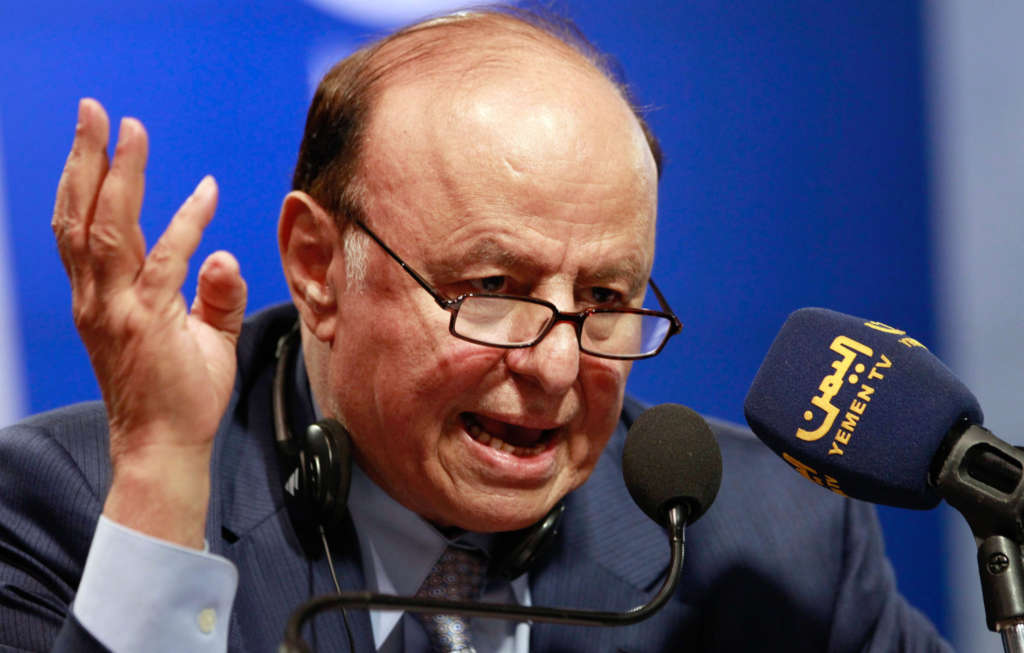Jeddah – New York – United Nations Secretary General Ban Ki-moon said on Tuesday that his decision to remove the Arab coalition from the blacklist annexed to a U.N. children and armed conflict report was based on a long careful study. He added that he discussed this issue with high-ranking Saudi officials, including Deputy Crown Prince Mohammed bin Salman.
Meanwhile, ambassadors of the 18 States sponsoring Yemeni political talks urged the warring parties on Tuesday to refrain from taking unilateral measures that could hamper the peace process. They also called on the Houthi rebels to respect the legitimacy of President Abd Rabbuh Mansour Hadi.
The ambassadors’ position represents a clear support to Yemen’s legitimate government, which had agreed on the roadmap proposed by U.N. Special Envoy Ismail Ould Cheikh Ahmed.
In the same context, following a meeting with Hadi in Riyadh earlier this week, the Yemeni government said all options remained open in case the rebels insisted on refusing to sign the international roadmap within the specified deadline.
Vice Prime Minister Abdulaziz Jabari told Asharq al-Awsat newspaper that should the Houthi rebels reject the roadmap, “our choices will be open and our dialogue sessions will be limited to the international community, without the Houthis and [ousted President Ali Abdullah] Saleh.”
On Monday, the Yemeni government’s delegation to Kuwait approved a U.N.-proposed deal based on U.N. Security Council Resolution 2216. The government gave a deadline of August 7 for the Houthi rebels to give their approval.
Cheikh Ahmed’s draft plan calls for the rebels to withdraw from three major cities, including the capital Sanaa, hand over weapons and return state institutions they seized in September 2014, according to the government.
The ambassadors of the 18 countries sponsoring peace talks in Kuwait expressed their concern over acts of destabilization performed by Saleh and the Houthis to hamper the peace process.
According to Al-Arabiya news channel, the ambassadors called on the rebels to fully implement UNSCR 2216 and refrain from taking any unilateral measures that could hinder peace negotiations.
Diplomatic sources said both political and military options would be open in wake of the rebels’ continued intransigence. They added that the military option could not be avoided in light of clear violations of the declared truce.
During the meeting between Hadi and the government’s delegation to Kuwait, available political options were discussed. Sources close to government said the delegation gave Hadi an overview of meetings held with ambassadors of several countries sponsoring peace talks during the 90 days of negotiations.
Meanwhile, Yemen’s new permanent representative to the Arab League, Riad Omar Al-Akbary, said the roadmap signed by the Yemeni government would pave the way for resumption of political negotiations based on UNSCR 2216, outcome of the national dialogue and implementation mechanisms of GCC initiative.
Al-Akbary presented his credentials on Tuesday to Arab League Secretary General Ahmed Abul Ghait. In comments, the new permanent representative said his permanent mission would deploy all possible efforts to promote the Arab joint cooperation. He added that his government’s recent approval of the U.N.-proposed roadmap has showed its commitment to the political process and the establishment of peace.
